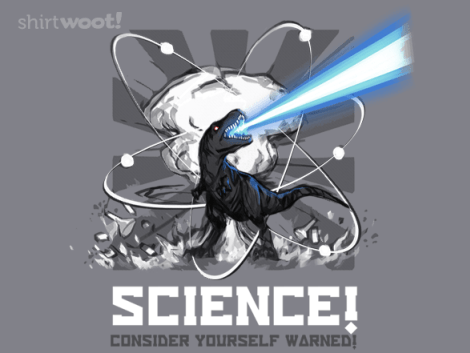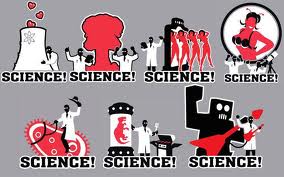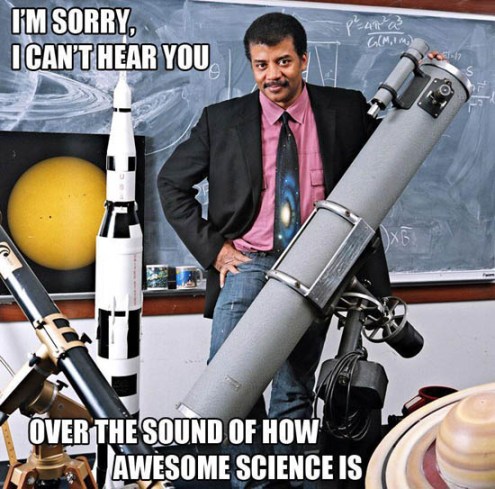The values of social media and blogging for academics
This was originally posted at: http://blogs.egu.eu/palaeoblog/?p=517
At this years European Geosciences Union General Meeting (Vienna), I’ve been asked to be on a panel discussion describing the ways in which I think using social media and blogging can enhance academic careers. Sometimes, talks of this kind can be very echo-chambery, and there are plenty of really cool guides already out there online. This was a chance though to actually directly target a group of academics who may not have any experience of these things though, so was an opportunity to mobilise a new wave of ‘web 2.0’-active academics. Of course, I’m writing this in advance of the actual discussion, so it might be the case that only a few people turn up and live-blog the entire thing, in which case it might be viewed as a little preaching-to-the-convertedy.
Here’s a rough transcript of what I said for my part of the discussion:
Right off the bat, I want to emphasise that using social media tools and writing blog posts are not for everyone. There is no ‘magic bullet’ pathway that is suddenly going to transform your career, and you won’t become some sort of maestro overnight: this stuff takes time, energy, and thought to commit to effectively. Time is the largest caveat: scientists work ridiculously long hours already; I personally work every day from about 10am until 12-4am, unless I’m off at a networking or learning event in London (or a conference), or decide to actually have a social life outside of the academic sphere. Not everyone can or wants to work hours like these, they might have families or other things to commit their time to, and many may not want to add these things to their extensive lists of things to do. People who say that ALL scientists need to become better communicators by embracing social media and blogging are blind to the pressures that we already face in terms of time commitment, and must realise that there is currently no formal reward system in place for us to embrace these things. Additionally, each person’s experience will be unique depending on their approach, so there is no general guide to success or even precisely what to do. It all depends on how much time you’re prepared to commit to these things, and the networks into which you find yourself integrated.

So, in spite of these first initial points of concern, the aspects of your academic career that using social media and writing blog posts can open up can be incredibly beneficial on three levels: personally, career-wise, and field-wide. I’ll address these sporadically below.
It seems to me, as a very early career researcher, that the realm of science and scholarly communication is changing. Scientists are beginning to embrace, to a degree, the use and value of social media, blogging, and public outreach and engagement as part of an adoption of a culture of scientific openness. In part, I think this can relate to the ‘Brian Cox Effect’, where, the broader public are becoming more interested in scientific advancements. I think that this actually goes beyond just blogging and social media then; it’s about the emergence of a new ‘model’ of scientist, where everything that we do is geared towards the question of ‘how can we take the science beyond the science’. There are 5 main traits that I think identify this model:
-
Academics are both aware and active with respect to current policy issues (e.g., science funding, open access, relative discipline-related policies such as marine science in the UK);
-
Commitment to direct public outreach, through science events, public seminars, skeptics in the pub etc.;
-
Indirect science communication, such as blogging, social media use (e.g., Twitter), science podcasting, television appearances – mostly related to the advancements of web technologies;
-
Open science advocation – taking your science out of the lab, not just by publishing in open access journals and using open data platforms like FigShare, but making the knowledge and the methods of knowledge acquisition accessible through ‘open notebook’ style transparency;
-
All the time, thinking about reciprocal engagement that you can only get through this sort of transparency; what can your science and your field do beyond simply getting published?
So here are some examples of how I’ve used this social media, blogging, and an adoption of this model personally:
-
The Science Online (SpotOn) conference last year, I was invited to co-host two sessions about how academics and policymakers can enhance their reciprocal engagement to improve the strength of science-informed policies;
-
I co-run a podcast series called Palaeocast, which just hit the benchmark of 10,000 downloads in just 6 months. Palaeocast is all about removing barriers between scientists and the broader public (i.e., by bypassing the lexicon of science-speak in journals), and we’ve found is a great way of conveying palaeontological research;
-
The many uses of Twitter:
-
As an amplification tool for research, blog articles, Palaeocast, other interesting items
-
An incredibly up-to-date news reel
-
Discussion and networking platform (indirectly and directly, through scitweetups) – I’ve actually got many good friends now who I met primarily through Twitter
-
As a mode of science communication, by opening up what scientists actually do, and demonstrating that they are willing to discuss their research more broadly and openly
-
-
Blogging has many uses too:
-
It opens up the process and outputs of my own, and others, scientific research
-
It makes research more accessible, by communicating it in a more informative and jargon-free (not the same as ‘dumbing down’) manner than journal articles
-
Have to be careful sometimes, as obviously blogs don’t have the ‘stamp of approval’ that peer -reviewed articles have. That’s why I think scientists make the best writers, as we know the field better, naturally, and are more adept at extracting and critiquing information within articles (it’s our job to)
-
-
It helps to build your online footprint
-
You can get feedback on your research from scientists within the field, and those outside too (e.g., copy-editors)
-
Throughout all this, it’s obvious that one medal certainly does not fit all. Everyone will have different experiences depending on what they’ve committed to, which networks they’ve developed, and who they’ve reached with their outputs. It’s worth emphasising that adaptation and flexibility are key, as social media develop, as science progresses, and due to the natural variation of audiences. But, you won’t know what the benefits of all of these are unless you actually go out there and try it, and stick with it. I can’t tell you how blogging, tweeting, or podcasting will enhance your career, your scientific development, or the outputs of your field of science – this is something you’ll only be able to tell after giving it a shot and looking back on changes after some time.

This brings us on to the issue of ‘impact’ – how do you know that your efforts of transparency, openness, outreach and engagement have actually had an effect? On a personal level, this is easy to see – check your writing, and see how much it has changed in style over time. The transformation can be quite impressive some times! But in terms of more broader impact, this is more difficult to measure. We’re in the early stages of quantitative measurement of research outputs – we all know that impact factors are a poor method of personal assessment, but we have tools now like altmetrics and ImpactStory that show the broader dissemination of research (blog posts, journal articles). But these still don’t measure ‘true impact’ – research impact isn’t citation counts, number of tweets, being picked up by a research outlet, it’s not even about being published in Nature; it’s about the things you can’t always measure. Comments and feedback you get, such as about initiating a societal or cultural change, or personal development or thought, are what really matters. You won’t always know about this, and dissemination metrics can only ever give you an informed guess about the potential volume of impact. For example, someone mailing you to say thanks for writing about your PhD and that it’s made them decide to pursue one now too after knowing a bit more about how they work, is worth more to me than a million blog post hits and no comments. It’s for these anecdotal comments why I do what I do – even if you can’t always put a number on things, it’s nice to know that what you’re doing is making a difference.
Now would probably be a good time to plug a recent article by a friend [the link to which is posted on Twitter, right abooout, now]. Jane Robb is a geologist and science communicator, and recently published a call for geologists to increase their public engagement activities, as a community. This occurs in two steps: firstly, within academia, in terms of wider education about the societal, cultural and economic implications of geoscientific research, which in turn would hopefully translate to more effective communication outside of academia, through the methods mentioned, and a broader appreciation and understanding of the effects of our research. This could help prevent issues influenced by the lack of understanding of our research, such as through the L’Aquila verdict where scientific evidence about earthquakes was effectively ignored and the concept of scientific uncertainty completely misconstrued, and more recently where Iain Duncan Smith made the ludicrous statement that geologists where of relatively less value than shelf-stackers, both of which point to a systemic communications issue between academia, and the end users of our research.
So, to summarise:
-
Social media, blogging, etc., are all good for the discipline in terms of increased public understanding of what it is we do as a research community, and facilitates two-way communication between science, the general public, and policy spheres;
-
Allows the general public to become reciprocally involved and engaged with the discipline (it is their money we’re spending after all much of the time, so why shouldn’t they get a say in how we progress?);
-
Blogging is superb for improving your writing skills, and learning to write for different audiences (and getting invited to conferences in Vienna);
-
Can help to inspire the next generation of scientists;
-
It’s a step towards embracing a culture of openness in science;
-
It increases your professional and public profile, naturally, which is great for job prospects, potential future collaborations, further promoting your research, and other opportunities.
That’s about it. Should hopefully have been about 10 minutes! If there’s more revealed during the discussion after this, I’ll write it up in a new article, and of course, feedback on the content here is greatly appreciated!

3 thoughts on “The values of social media and blogging for academics”